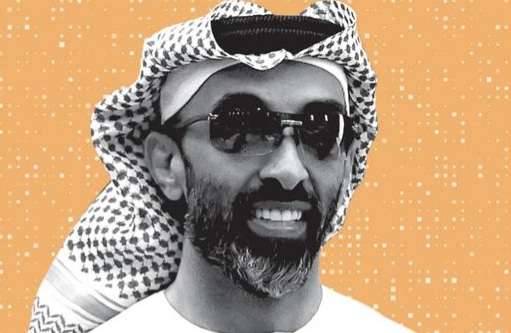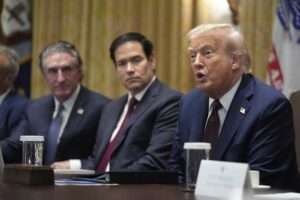By Maria Maalouf
When Time magazine selects only one Arab leader among its annual list of the 100 most influential figures in artificial intelligence, it is not a token gesture or a media courtesy. The inclusion of Sheikh Tahnoun bin Zayed Al Nahyan—Deputy Ruler of Abu Dhabi, UAE National Security Advisor, and Chairman of G42—underscores a deliberate national strategy that places the Emirates at the center of one of the most consequential arenas of our era: artificial intelligence and the geopolitics of the future.
Sheikh Tahnoun’s presence on the 2025 list—his second consecutive year—signals that his influence is not symbolic. In a global landscape dominated by names like Elon Musk, Sam Altman, Jensen Huang, and Mark Zuckerberg, the emergence of an Arab leader who has carved out recognition through concrete results and long-term vision is striking.
Through his leadership of G42, Sheikh Tahnoun has overseen the transformation of a regional player into a global platform for supercomputing and AI applications. This is part of the UAE’s national strategy to become a leading AI power by 2031. The scale of ambition is staggering: up to $1.4 trillion in U.S. infrastructure investments over the next decade, coupled with the construction of one of the world’s largest AI data centers in Abu Dhabi, projected at 5 gigawatts of capacity—the largest outside the United States.
These initiatives are not merely technological upgrades; they are tools of geopolitical repositioning. Sheikh Tahnoun’s meeting with President Donald Trump in March was more than protocol—it translated into tangible investment commitments and practical steps that locked the UAE into the core of global technology partnerships.
What makes the UAE’s AI project distinctive is that it is not about catching up to others but about shaping the international order itself. In today’s world, artificial intelligence is not only an economic driver but also a matter of national security and global influence. That Sheikh Tahnoun holds both security and economic portfolios illustrates a rare balance between development imperatives and security priorities.
According to Time, his interest in AI dates back to 1997, when IBM’s computer defeated world chess champion Garry Kasparov. For Sheikh Tahnoun, that moment marked the beginning of a strategic curiosity that matured into a vision now altering the Middle East’s technological trajectory.
The fact that only one Arab name appears on Time’s roster—alongside pioneers like Yoshua Bengio and Fei-Fei Li—underscores how the UAE has broken through traditional limitations. This is recognition not of symbolism, but of substance: a political and economic role that extends far beyond the Gulf.
In the end, Sheikh Tahnoun bin Zayed’s place on the list is less about individual prestige than about the UAE’s emergence as a strategic actor in global AI governance. The Emirates are entering the AI race not as spectators, but as participants shaping the rules. In a world changing faster than ever, it takes rare strategic minds like Sheikh Tahnoun to secure a seat for the Arab world at the table where the future is being designed.















